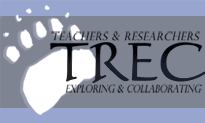 |
|
|
| Author |
Message |
Laurie_Carr

Joined: 23 Mar 2004
Posts: 24

|
 Posted:
Sat Sep 18, 2004 9:25 pm Posted:
Sat Sep 18, 2004 9:25 pm |
  |
APES and ARCUS
Acronyms abound! Once defined one may ask what Advanced Placement Environmental Science and Arctic Research Consortium of the United States have to do with one another.
In June, I was at Toolik Field Station LTER in Alaska on assignment for TREC of ARCUS, and in July, I was on assignment for my high school to APES institute in Vermont.
A colleague and I were sent to the institute on behalf of our high school, in hopes of adding environmental science to our program of studies. There is potential for two of us to team teach a year-long course in part, of our own design.
Having just returned from a fantastic arctic experience, I was eager to share my ideas. The course was quite front-loaded with content and pedagogy, but as the week went on there were more and more opportunities for collegial dialog. Given the chance, I offered examples toward tundra, carbon and nitrogen cycling and climate change as unifying themes.
On the last day participants were to bring in something to share. As most participants were already teaching APES, they brought in materials and lessons that they had found helpful.
I offered two things:
One: instead of using a case study at the end of a "unit" as an enrichment activity, put the case study in the center and branch the curriculum out from it.
I gave them Toolik Field Station Long Term Ecological Research site as an example.
When first given the opportunity to apply for a TREC position with ARCUS I didn't know where in the arctic or when in the summer I'd be placed, if I was even lucky enough to land a spot. When I was selected for Toolik, Alaska-tundra plant diversity I was elated…not sure how much would mesh with my earth science curriculum, but elated.
Earth science is a physical science requirement option, and includes the branches; geology, meteorology, oceanography and astronomy.
I described to my new APES friends my early concerns about being able to weave this into an earth systems approach in my classroom, but that after a very short time I was finding connections everywhere.
I invited them to help me brainstorm some thematic approach ideas, and in moments they had me using this location to cover all of the 4 branches! I was only asking them to imagine a concept web of connections with tundra and the climate component of meteorology!
The flurry of ideas included; soils and permafrost, geomorphology and glaciology, tilt of earth and seasons, magnetism and auroras, natural resources, remote sensing and satellite imaging, not to mention the obvious greenhouse effect and global climate change.
Brainstorming, like this is crucial for me. The cognitive developmentalist and middle schooler in me have to map out the connectivity-if that’s a word. I think some of them were thinking how they could carry this approach over to AP environmental science, and the inherent challenges.
The other APES teachers, and instructor, were very interested in ARCUS and TREC, so the second thing I left them with was the encouragement to do things like this. My time in the arctic, surrounded by researchers so very jazzed about their science was a real boost to me professionally.
Because I had this exposure I know I want to not only share this experience with my classes this fall, but also make it a point to provide ample opportunities for kids to see what’s out there, immerse themselves in a setting, and know what’s possible.
As the school year progresses I hope to report back with more specific details of just how arctic research becomes integrated into my ninth graders’ lives.
I encourage any readers to post questions or comments to the virtual base camp, or email me directly at laurie_trec@arcus.org I welcome and need the input! |
|
|
    |
 |
|
|
|
View next topic
View previous topic
You cannot post new topics in this forum
You cannot reply to topics in this forum
You cannot edit your posts in this forum
You cannot delete your posts in this forum
You cannot vote in polls in this forum
You cannot attach files in this forum
You can download files in this forum
|
Powered by phpBB 2.0.11
© 2001, 2002 phpBB Group :: FI Theme ::
All times are GMT
| |
